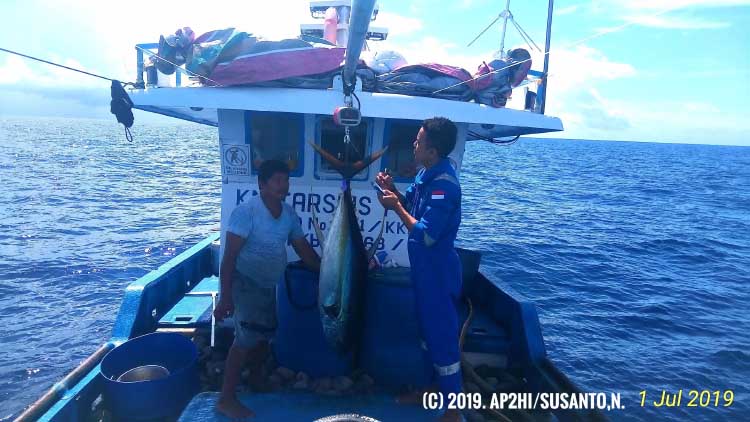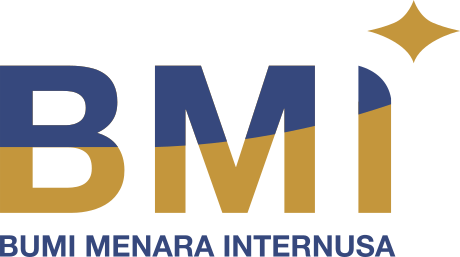
Aquaculture Fisheries Priority Targets and Programs in 2021
December, 04 2021JAKARTA - The Directorate General of Aquaculture (DJPB), the
Ministry of Maritime Affairs and Fisheries (KKP) has targets and priority
programs to increase aquaculture productivity in 2021.This was emphasized by
the Director General of Aquaculture, Slamet Soebjakto, virtually when giving an
explanation at the 2020 Evaluation and 2021 Plans for Aquaculture Priority
Activities, which were held in Yogyakarta (22/12).According to Director General
Slamet, for 2021 the aquaculture production target is around 19.47 million tons
consisting of 7.92 million tons of fish and 11.55 million tons of seaweed, an
increase of 1.03 million tons from the 2020 production target of 18. 44 million
tons."Despite the pandemic era, we are used to the current pattern of
working. Therefore, let's work optimally to achieve the targets that have been
set, "said Slamet. In addition to consumption fish production, another
target in 2021 is the production of ornamental fish, now coordination and
cooperation with local governments both in the
province/districts/municipalities must be initiated, in order to build
synergies in the development of aquaculture in regional areas.“The need for
ornamental fish also increases from year to year for both domestic and export.
So with the regions, establish cooperation both for cultivation and business so
as to contribute to economic improvement both for cultivators and the region,
"said Slamet.
In
addition to the production target, what is no less important is improving the
welfare of the cultivators. "The Covid-19 pandemic is still the scourge of
a general economic downturn in all sectors. It is hoped that the aquaculture
sector will become one of the pillars of the community's economic revival. The
trick is how to increase the income target of cultivators, so that they can be
more independent and established. This is where all of us work and of course we
all have to be passionate about achieving that target,” said Slamet.
One
of the priority programs for aquaculture is self-feeding. Slamet hopes that in the
future, independent feed will be more strategic and able to increase
aquaculture production. There are more and more fish cultivators to produce
feed independently.
"I
frankly give a very big appreciation and thank you because the growth of
independent feed is very fast and we will continue to support this
program," said Slamet.
Besides
that, in 2021 through the broodstock center network, in order to prepare
superior parents. "With superior broodstock, we can get good seeds, so
that cultivation production can be further increased," said Slamet.
"Therefore,
the smooth realization of the program requires an acceleration strategy as well
as continuous coordination and collaboration with all stakeholders at the
central and regional levels to ensure the development of aquaculture can be
carried out quickly, effectively and efficiently. In accordance with the
targets that have been set," continued Slamet.
"Meanwhile,
other components that are prioritized are licensing issues and cultivator
insurance. Especially for shrimp farming licensing. Then for cultivator
insurance, we need to invite cultivators to participate in insurance in order
to reduce losses for cultivators due to crop failure caused by disease or
natural disasters," explained Slamet.
As
for this year's achievements, according to Slamet, we really appreciate the UPT
and all stakeholders for what has been done in helping to improve aquaculture.
Hopefully in the future it can be better and better, so that the expectation of
aquaculture can be a support for food security and economic recovery can be
realized.
"I
personally appreciate the temporary aquaculture PNBP target of 103%, the
performance of the UPT by distributing seed aid in the regions, and for the
achievements of the programs that have been implemented," said Slamet.
Besides
that, what is no longer important is the strengthening of data and information
as well as the Standard Procedures and Criteria Norms (NSPK) in the context of
improving aquaculture governance. Therefore, KKP is developing more accurate,
accountable and updated data in the future.
Advisory
Coordinator to the Minister of Maritime Affairs and Fisheries, Prof. Rokhmin
Dahuri said that in the midst of a pandemic like now, we must be sure why
aquaculture is suitable as a prime mover, leading sector, or superior sector.
Because, as the largest archipelagic country in the world with 75% of its total
area being sea and 28% of its land area being freshwater ecosystems (lakes,
dams, rivers, and swamps), Indonesia has the largest aquaculture production
potential in the world, around 100 million tons/day. year which until now has
only been used about 16%.
“Now
it's only about 16%, it's still very little. That's why we can still encourage
it to increase further in the years to come, "explained Prof. Rokhmin.
In
addition, continued Rokhmin, by definition aquaculture does not only produce
animal protein in the form of fish, shrimp, mollusks. But once again, raw
materials for various types of industries can also be provided by aquaculture,
so the potential for aquaculture is extraordinary.
“The
future of our fisheries is in aquaculture. That's why it's important to have
careful planning to continue working on its potential so that the productivity
of our aquaculture can continue to increase," he said.
Marine
practitioner Prof. Laode M. Kamaluddin, said that in order to realize the
program and performance, it must be supported by valid data. Because data has a
strategic role, especially in today's digital era, data is the determining
factor.
“If
there is no data, it is called a hoax or fake news. So this is where the
important role of the data itself, "said Prof. Laode.
Therefore,
the role of data and information becomes very important in the MPA for the
development of systems for planning, monitoring, evaluating performance and
reorganizing data. Especially for the development of aquaculture which really
wants to continue to increase its productivity.
"For
a ministry class such as the KKP, it is appropriate and proper to have big data
to evaluate, plan programs and initiate fisheries and marine development
programs such as aquaculture improvement programs that can be accessed from
time to time making it easier to plan and target programs and increase fishery
production from year to year. to years," said Laode.

KELOLA MINA LAUT, PT
+62-31-3976351-3/ +62-31-3976349
EDMAR MANDIRI JAYA, PT
+62811370931
ALAM JAYA, PT
(62-31) 8495811
PT. BUMI MENARA INTERNUSA
+6231 7491000
PT. RAJAWALI ANUGERAH SEAFOOD
+628116336331






